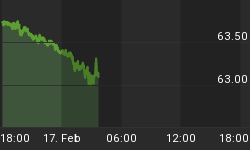Last week's PMI surveys for the Euro-zone and for its various countries warned that the outlook for Q4 is deteriorating sharply. To date, the strongest of the major Euro-zone economies clearly has been Germany, which may actually escape a technical recession if consumer demand keeps Q3 real GDP growth in positive territory. However, today's October Ifo business climate index for Germany - a poll of around 7,000 firms from this key exporting nation - deteriorated for the fifth consecutive month, coming in at just 90.2, down from 92.9 in September and the lowest reading in five-and-a-half years. The gauge of current conditions stalled at 99.9 (99.8 in September) but the big news was the expectations index, which dropped from 86.5 last month to 81.4 in October. This is the lowest expectations reading since the survey began back in 1990. Last week's PMI surveys from Germany also painted a very gloomy picture, with the manufacturing new orders index dropping to 39.3, the lowest since the series began in 1996, and business expectations in the services sector dropping to 34.3, the lowest since that series began in 1997.
Chart 1
The sharp drop in demand for German exports, along with the impact of the ongoing global credit crunch on its financial sector, look set to push Germany's real GDP back into negative territory in Q4, and the risk is increasing of a sustained slowdown through the first half of 2009.
That being said, it may seem surprising that one of our favorite Euro-zone leading economic indicators dipped only slightly this month. The Belgian National Bank business confidence index (a leading indicator for Euro-zone growth about six months out), released last Thursday, came in at -14.8, down from -14.1 in September.
Chart 2
However, recall that September's drop was particularly sharp, and that the bulk of the October survey was conducted earlier in the month. With very pessimistic business morale and PMI surveys coming out of Germany, France, Italy, and Spain in recent days it is highly likely that the Belgian indicator is merely taking a breather this month before a renewed downturn in November.
Given the increasing risk that the Euro-zone will suffer three or more consecutive quarters of real GDP (the first having come already in Q2), the European Central Bank is likely to cut its refi rate at least once more before the end of this year - quite likely at the next policy meeting on November 6.
















